
|
Jacket 18 — August 2002 | # 18 Contents | Homepage | Catalog | |
Postcards...ten poems by Henry J.-M. Levet (1874–1906)translated by Kirby Olson |
Introduction
In a letter from 1950, Edmund Wilson wrote to Christian Gauss about André Gide’s new anthology of modern French poetry. ‘He has produced some amusing modern poets — such as Franc-Nohain and Henry J.-M. Levet, of whom I had never heard. Do read these, if you don’t know them.’ |
|
|
|
Fargue and Larbaud considered Levet to be the next important link in the chain of modernism that runs from Whitman to Rimbaud to Laforgue. Larbaud wrote, ‘I dreamed of a poet, a fantasist, sensitive to the diversity of race, peoples, countries, for whom everything or nothing would be exotic (it amounts to the same thing), very ‘international,’ a humorist, capable of doing Whitman tongue-in-cheek, giving a comic note of joyous irresponsibility, which was lacking in Whitman. At bottom, I was looking for a successor to Laforgue, Rimbaud, and Whitman. And here I seem to have found him ... Henry J.-M. Levet.’ |
| |
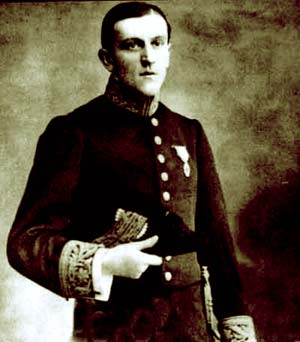
|
|
Levet wrote a novel called The Benares Express, but it was withheld from publication by his parents, and is now presumably lost. Other than that novel, what is all the more astonishing about Levet’s influence is that, aside from a few garbled pages of juvenilia along symbolist lines, Levet’s mature work amounts to 11 pages. Those 11 pages, known as ‘Cartes Postales’, or ‘Postcards’, are all published here in Jacket magazine for the first time in English in their entirety. They are in the same order that they were originally published by Maison des Amis des Livres in 1921. |
Postcards — Tropical Sonnets |
| |
Voyages (triptych)IOutwardsTo Francis Jammes
The Armand Behic (of the Maritime Freight) |
| |
|
| |
Sonnets torridesLes Voyages
|
| |
IIBritish IndiaTo Rudyard Kipling
The offices close at four o’clock in Calcutta; |
| |
II
|
| |
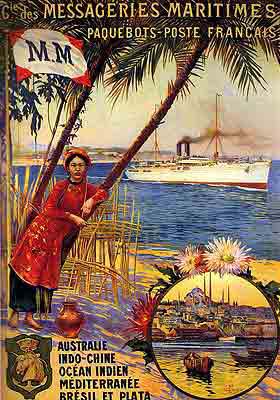
|
| |
IIIHomewardsTo M.P. Bons d’Anty
At the Waterloo Hotel, I have had my lunch, |
| |
III
|
| |
French PossessionTo the memory of Laura Lopez
One recalls the Goyaves chapel |
| |
Possession Française
A la mémoire de Laura Lopez |
| |
West AfricaTo Leon-Paul Fargue
On the verandah of his hut, at Brazzaville, |
| |
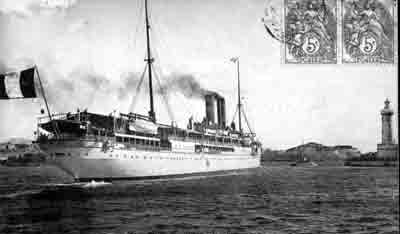
|
| |
Afrique Occidentale
A Léon-Paul Fargue |
| |
Algeria — Biskra
Under the terraces of the Royal the ghoums file past |
| |
Algerie – Biskra
A Henry de Bruchard |
| |
Argentine Republic — La Plata
Neither the most agreeable Argentines, |
| |
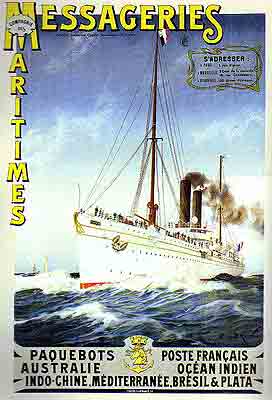
|
| |
Republique Argentine – La Plata
A Ruben Dario |
| |
Egypt–Port Said — En RouteTo Gabriel Fabre
One looks at the brilliant fires of Port Said, |
| |
Egypte — Port-Saïd — En Rade
A Gabriel Fabre |
| |
Cote D’Azur — NiceTo Francis Jourdain
Scotland is veiled with its classic mists, |
| |
Cote D’azur – Nice
A Francis Jourdain |
| |
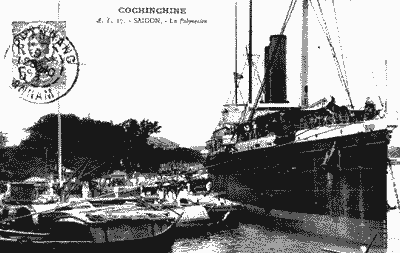
|
| |
Japan —NagasakiTo Auguste Brunet
The city has closed its many colored eyes |
| |
Japon – Nagasaki
A Auguste Brunet |
|
|
|
Jacket 18 — August 2002
Contents page This material is copyright © Kirby Olson
and Jacket magazine 2002 |